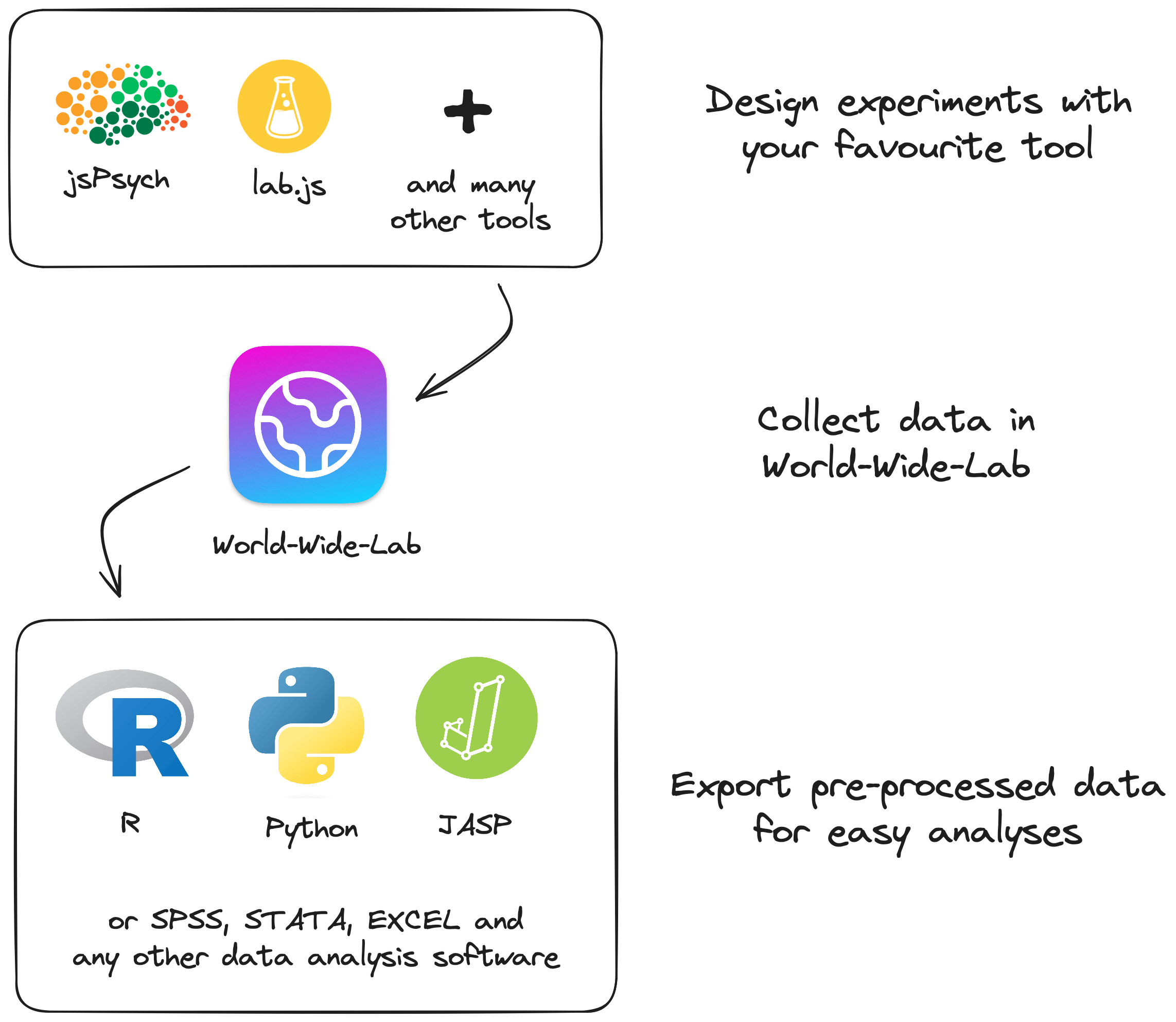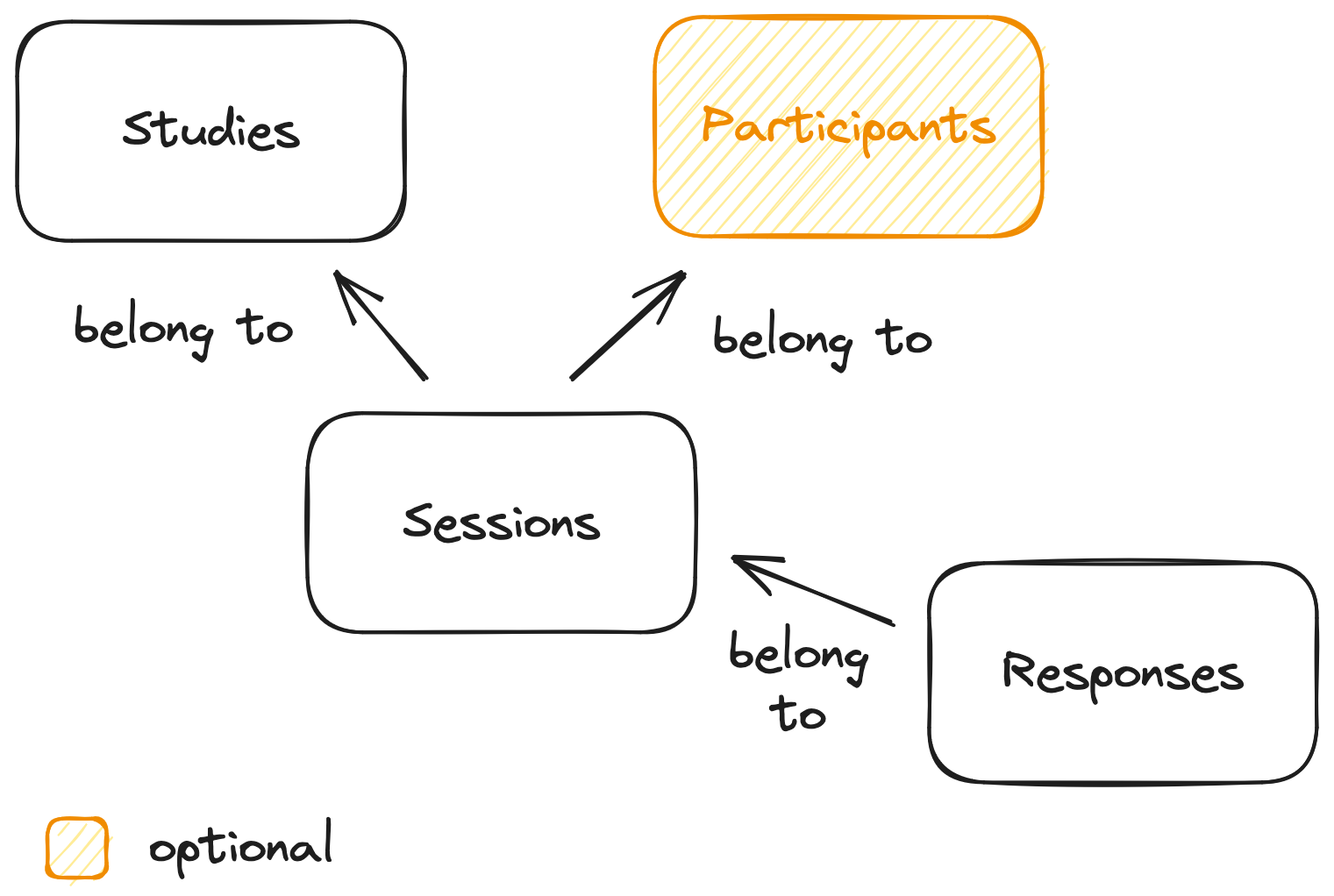What is World-Wide-Lab?
WARNING
World-Wide-Lab is currently in beta, so we might still be tweaking a few things here and there. Feel free to reach out to us if you want to start using it for a project and we can help you get started!
World-Wide-Lab is a platform to collect online data at scale, with a special focus on running online citizen science experiments.
World-Wide-Lab sits right in between web experiment libraries and data analysis software in the scope of running an online web study.

You can create you web experiment or study using the library of your liking e.g. jsPsych or lab.js. Then you can put your study online and collect data in World-Wide-Lab, where data is stored inside a database. World-Wide-Lab is specifically created to avoid or handle common problems with online data collection, such as automatically scaling up resources to support a sudden increase in participants when e.g. your study is posted on a popular forum. When enough data has been collected, you can export your data from World-Wide-Lab with automatic pre-processing applied to save yourself some complicated data cleaning steps. Data is exported in standard formats, so any data analysis software is supported (e.g. R, Python, JASP, ...).
The World-Wide-Lab Data Model

Data in World-Wide-Lab is organized into four different tables.
Whenever you wish to get started with a new study or experiment, you will first have to create a new Study on World-Wide-Lab. Every time someone participates in a study, their data is automatically organized into a new Session. Every time they answer even a single question or finish a task, a new Response is collected. Responses are collected individually and not in aggregate at the end of the study, to avoid potential data loss if someone only participates in part of a study. Linking Participants between studies and sessions is possible as well.